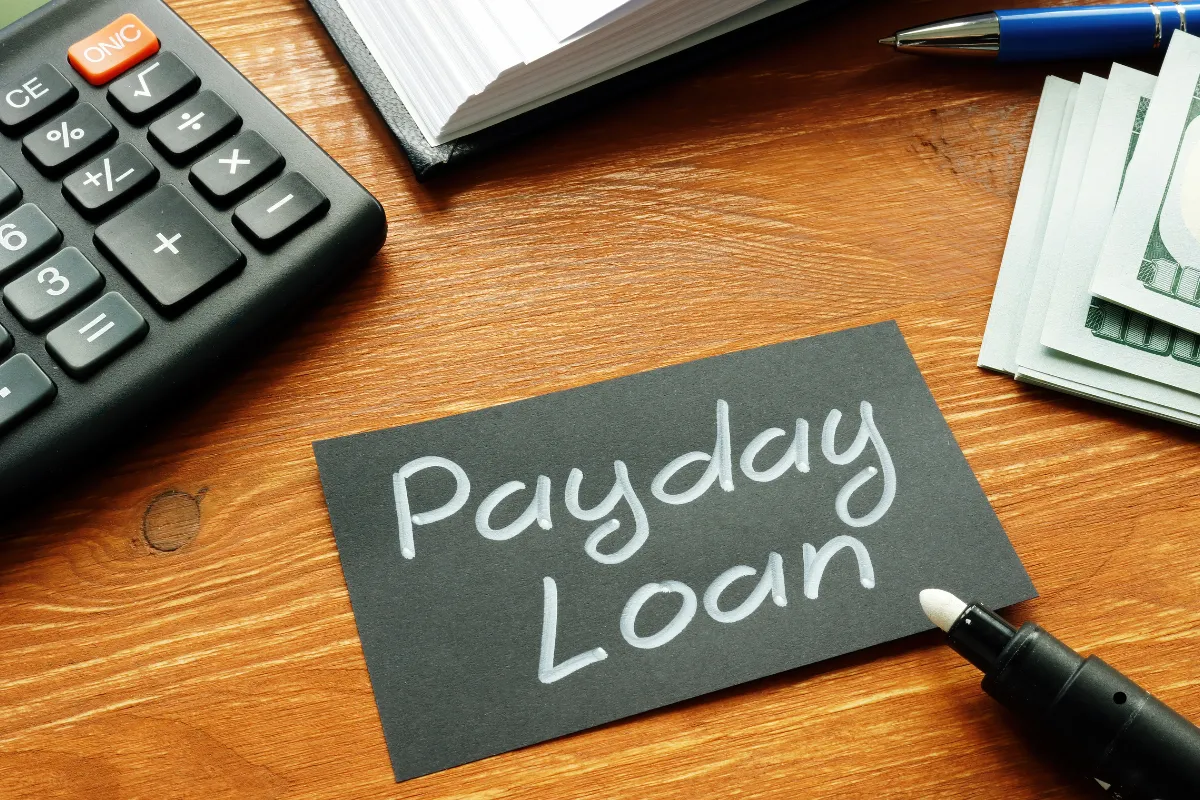How To Check For Payday Loans? Get Ultimate Guide In 2024

Ad Discloure
iOnlinePayDay.com serves as a platform that links borrowers with payday lenders. We do not take the complete guarantee of its accuracy, completeness, or dependability. We encourage responsible borrowing and urge borrowers to consider alternative financial options before making a decision.xDo you want to get a payday loan but are unsure where to begin? You’re not alone. Payday loans can be a quick and easy way to get cash when you need it most. People turn to payday loans for various reasons: emergency medical bills, car repairs, or covering bills to avoid late fees.
They’re often seen as a lifeline in financial distress. It’s important to approach them cautiously, though. You can make an informed choice by following this guide, which will lead you through all you need to know about looking for payday loans.
How To Check For Payday Loans? Payday loans can be a quick solution in financial emergencies, but it’s crucial to ensure the lender you’re dealing with is legitimate.
How To Check For Payday Loans: Legitimacy
Payday loans can be a quick solution in financial emergencies, but it’s crucial to ensure the lender you’re dealing with is legitimate.
Examine the Lender
- Look Up the Business Online: Start by doing a quick online search of the lender’s name. Check to determine if their official website is well-designed and offers a wealth of information about the services they offer.
- Check the Contact Details: An email address, phone number, and physical location. Verify that these are accurate details and that you can get in touch with them using these methods.
Verify License Status
- State Laws: Every state in the union has laws pertaining to payday loans. To find out if the lender has a license to operate in your state, visit the website of the financial regulatory authorities in that area.
- Federal Licensing: In addition to state licensing, some payday lenders may also be registered with federal organisations. Verify any government registrations or licenses, as these can provide further credibility.
Examine Testimonials & Reviews
- Customer Reviews: How To Check For Payday Loans? Check out impartial review sources for client testimonials. One can learn about other borrowers’ experiences by visiting websites such as Trustpilot, Google Reviews, and the Better Business Bureau (BBB).
- Testimonials on Their Website: While testimonials on the lender’s website can be helpful, they may be biased. Use these as supplementary information and rely more on independent sources.
Evaluate Website Security
- Secure Website: Ensure the lender’s website is secure. Look for the “https” protocol in the URL and a padlock icon in the address bar. This demonstrates that the website is secure and that your personal information will be protected.
- Privacy Policies: Check the website for clear privacy policies and terms of service. Legitimate lenders will outline how they protect your data and what they do with your personal information.
Verify Loan Terms and Conditions
- Clear Charges and Tariffs: A trustworthy lender will be up-forward and honest about all costs, interest rates, and terms of repayment. If you find any hidden charges or unclear terms, consider it a red flag.
- Look closely at the Print: Make sure you are aware of all the details, including interest rates, payback plans, and late payment penalties.
Speak with Regulatory Bodies
- Consumer Financial Protection Bureau (CFPB): The CFPB provides resources that can help verify the legitimacy of payday lenders. They also give you details on your liberties and safeguards as an end user.
- State-Originalized Financial Supervisor: One can contact them to verify the lender’s license and check for any complaints or actions taken against them.
Understanding Payday Loan Terms and Conditions
To assist you in navigating the frequently confusing world of payday financing, here is a breakdown:
Terms of Repayment
- Brief Payback Term: Payment loans are intended to be returned quickly—typically by your next payment or in two to four weeks. Repaying the loan in full may be difficult for debtors due to the short payback time.
- Payment Options: Payday lenders usually demand that borrowers give postdated checks or give permission for electronic withdrawals from their bank accounts on the due date.
Borrowing Limits
- Maximum Loan Amounts: Payday loans often have borrowing limits based on your income and state regulations. These limits vary but are generally a fraction of your paycheck.
- Minimum Loan Amounts: Some lenders impose minimum loan amounts, meaning you may have to borrow more than you need, leading to higher costs.
Extra Things to Think About
- State Laws: State-specific legislation governing payday lending has an impact on borrowing limits, fees, and interest rates.
- Openness: Reputable lenders offer terms and conditions that are unambiguous and transparent, outlining all costs and requirements for repayment. Steer clear of lenders who are evasive or hesitant to provide essential details.
- Consumer Protections: Understand your rights as a borrower and the protections provided by federal and state laws. Organisations like the Consumer Financial Protection Bureau (CFPB) offer resources and assistance to consumers dealing with payday loans.
Evaluating Your Financial Situation
Evaluate Your Present Financial Requirements:
Ascertain your needs for the funds, including whether they are for a necessary or a discretionary buy. Making an informed choice will be aided by your understanding of the goal.
Establish the Necessary Amount:
Determine the amount of money you will require for additional necessities, such as emergencies. To prevent taking on more debt than is necessary, be specific.
Sources of Income:
Take into account every source of income, such as salary, earnings, freelancing, and any additional sources. Determine your entire monthly salary.
Monthly Outlays:
Make a list of every monthly expense you have, such as debt repayment, utilities, food, groceries, transportation, rent or mortgage, and discretionary spending. To find your disposable income, deduct your expenses from your income.
Conclusion:
In an emergency, payday loans can be quite helpful, but they also carry a lot of risk. You can choose the lender that best meets your financial demands by doing extensive research on them, reading the terms and conditions, and weighing your options. Never forget to handle loans sensibly to keep yourself out of a debt cycle.
FAQs:
Q1. What is the typical interest rate on a payday loan?
Interest rates on payday loans can be extremely high, often exceeding 400% APR annually.
Q2. When may I submit an application for a payday loan?
The funds from payday loans are usually available the same day or within 24 hours after being processed.
Q3. Can someone with inadequate credit get a payday loan?
Indeed, because payday loans don’t involve a credit check, they are frequently accessible to people with bad credit.


